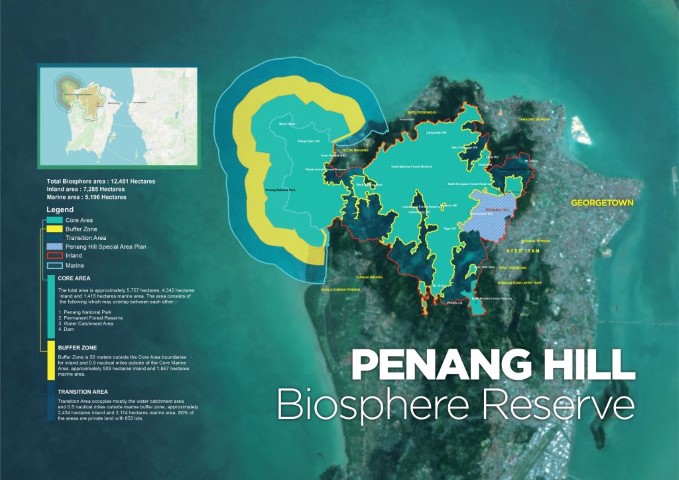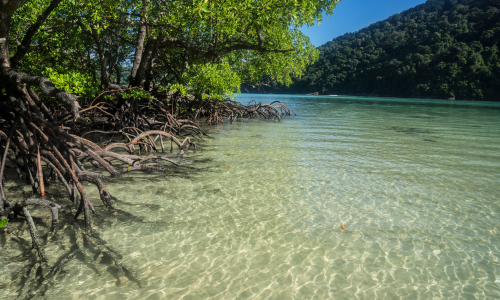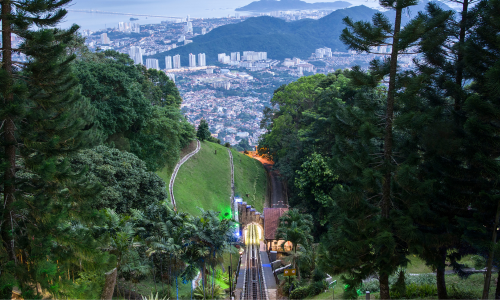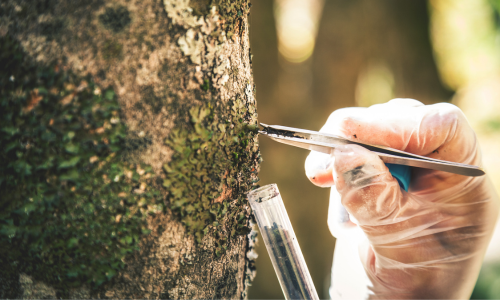UNESCO's Man and the Biosphere
(MAB) Programme
About
Man And Biosphere (MAB)
The UNESCO’s MAB Programme was established in 1971 and is based on the recognition that humans are an integral part of the biosphere and that the conservation of biodiversity and the sustainable use of natural resources is important for the well-being of humans and the environment.

The MAB Programme was established in 1971 and is based on the recognition that humans are an integral part of the biosphere and that the conservation of biodiversity and the sustainable use of natural resources is important for the well-being of humans and the environment.
The programme operates through a network of Biosphere Reserves worldwide, which act as models for sustainable development and conservation.
The Penang Hill Biosphere Reserve, located on Penang Island in Malaysia, is an example of a Biosphere Reserve established under the MAB Programme.
The reserve includes protected areas, conservation zones, and sustainable land use practices designed to promote biodiversity conservation and sustainable use of natural resources on the island.
The reserve also plays a vital role in research and education, with programs designed to increase public awareness of the importance of the rainforest and its conservation.
Overall, the MAB Programme and Biosphere Reserves provide an essential framework for promoting biodiversity conservation and the sustainable use of natural resources worldwide.
By working with local communities, researchers, and other stakeholders, Biosphere Reserves can help protect and conserve the unique ecosystems and natural resources that are so important for the well-being of humans and the environment.
About
UNESCO's Man and the Biosphere (MAB) Programme
The UNESCO’s MAB Programme was established in 1971 and is based on the recognition that humans are an integral part of the biosphere and that the conservation of biodiversity and the sustainable use of natural resources is important for the well-being of humans and the environment.

The UNESCO’s MAB programme operates through a network of Biosphere Reserves worldwide, which act as models for sustainable development and conservation.
The Penang Hill Biosphere Reserve, located on Penang Island in Malaysia, is an example of a Biosphere Reserve established under the UNESCO’s MAB Programme.
The biosphere reserve includes protected areas, conservation zones, and sustainable land use practices designed to promote biodiversity conservation and sustainable use of natural resources on the island.
The biosphere reserve also plays a vital role in research and education, with programmes designed to increase public awareness of the importance of the rainforest and its conservation.
Overall, the UNESCO’s MAB Programme and Biosphere Reserves provide an essential framework for promoting biodiversity conservation and the sustainable use of natural resources worldwide.
By working with local communities, researchers, and other stakeholders, Biosphere Reserves can help protect and conserve the unique ecosystems and natural resources that are so important for the well-being of humans and the environment.

Map & Zonation

Ecosystem

Tourist Attractions

Gallery

Partners

Programmes


